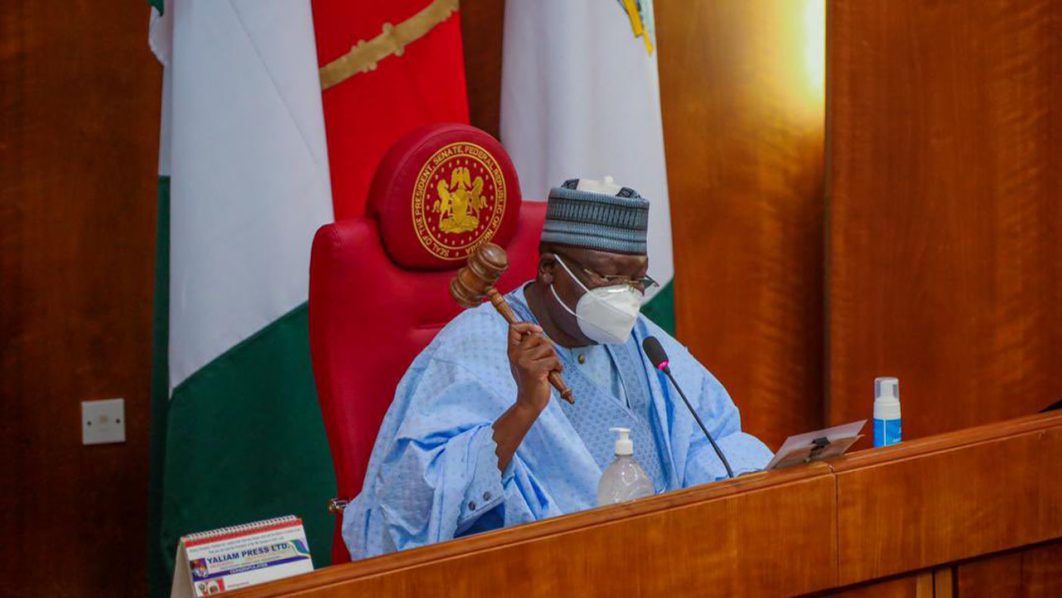
Senate President, Ahmad Lawan, has strongly defended the decision to rely on foreign loans to fund developmental projects in the country.
Speaking at the end of deliberation on the 2020-2024 Medium Term Expenditure Framework and Fiscal Strategy Paper (MTEF-FSP) in Abuja, Lawan said the recourse to foreign borrowings remained the only way to fast-track infrastructure development in the country.
In the MTEF-FSP, approved by the lawmakers, were projected new borrowings of N4.89 trillion (including foreign and domestic) and the $3.5 billion International Monetary Fund (IMF) loan at the rate of 0.01 to 0.02 per cents.
Lawan, who acknowledged the concerns of well-meaning Nigerians, regretted that the “Peoples Democratic Party (PDP)-led administrations, which earned huge oil revenues failed to make hay when the sun shone, by fixing the comatose infrastructure in the country.”
Deploring the scarce resources available to him, the President assured Nigerians of better living.
The Senate President, who was alluding to the controversy surrounding the sharing of the Value Added Tax (VAT) proceeds between the states and the Federal Government, insisted that VAT income would continue to be a major source of funding the budget until the pronouncement of the Supreme Court.
The Yobe-born politician charged the Nigeria Customs Service (NCS) and the Federal Inland Revenue Service (FIRS) to shore up their internally generated revenues for funding of government’s endeavours.
He deplored the overdependence of agencies and departments on government revenues for survival, hinting that plans were afoot to address the situation, as part of ongoing measures to cut the cost of governance in the country.
The panel chairman, Solomon Olamilekan, harped on the need to implement the Oronsaye report, aimed at cutting the cost of governance by 40 per cent.



